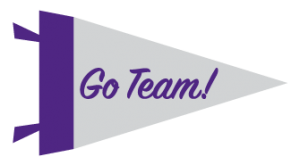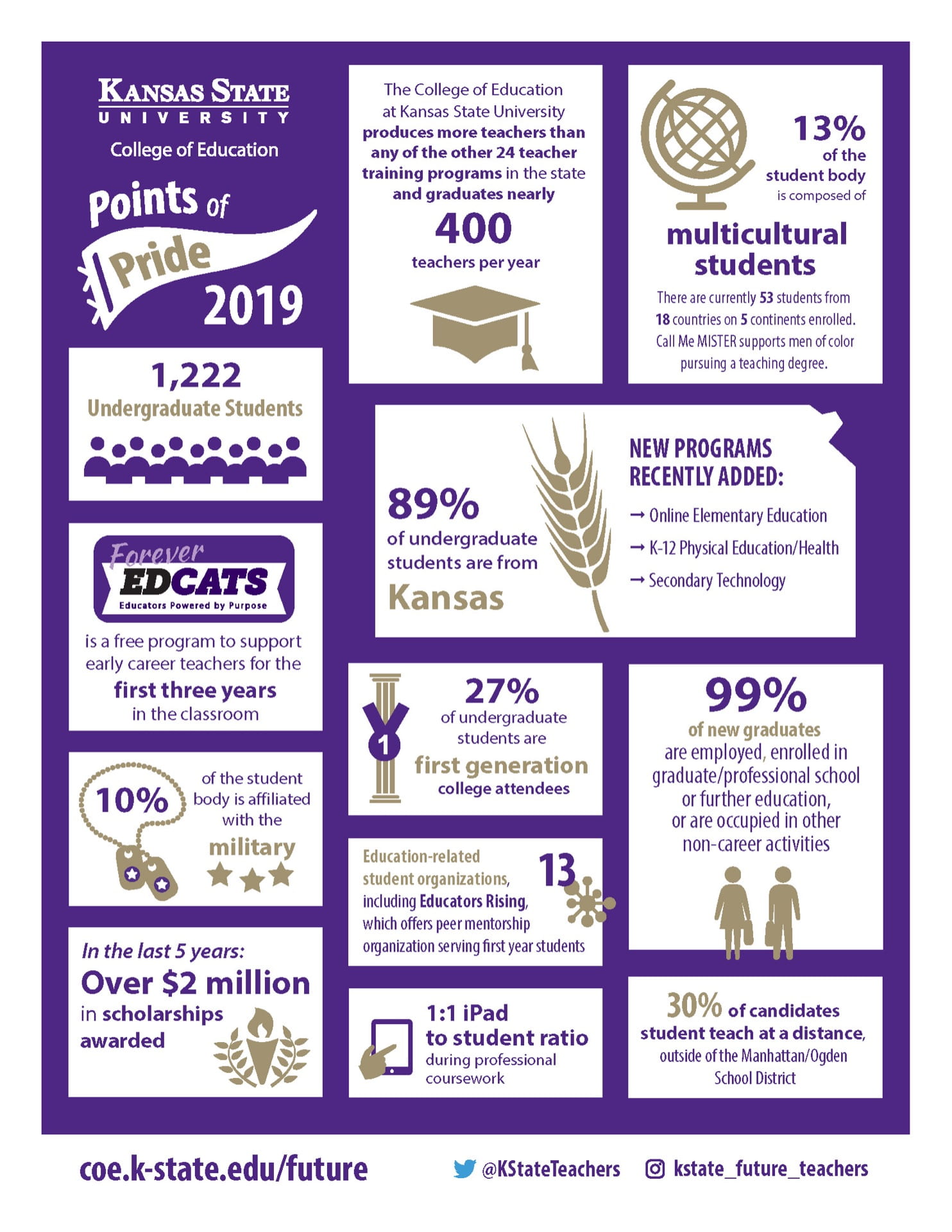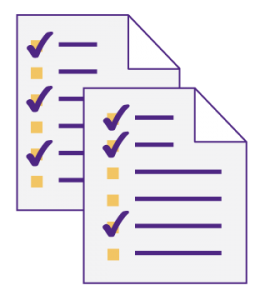Lori Goodson, Editor
Mary Hammel, Technical Editor
Category: October 2019
In the Classroom: Christa Grider
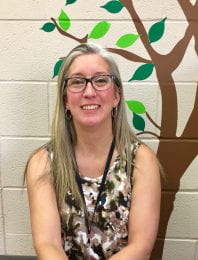
Name: Christa Grider
School district: USD 475
City/State: Fort Riley, KS
Class/content area taught: Kindergarten
What you are most excited about with your new career: Making meaningful connections and learning experiences with my students. That is the BEST part of teaching!!!
What you enjoy most about teaching: There are so many things that I could list for this question, but a few of the most enjoyable moments are being witness to the moments that students connect the content I’ve taught to their real-life experiences, overhearing them apply new vocabulary learned to in-the-moment conversations, and watching each individual learner grow.

Ways your school/district has supported you: My school district has provided incredible new teacher training for CHAMPS, our policies and benefits, professional learning development and curriculum training specific to each grade level. This support has eased my anxiety in what to expect and know as a new educator. Additionally, my school has provided all the content materials and content manipulatives a new educator could hope and dream for.
Ways KSU especially helped prepare you for your new career: The biggest take away that I learned from KSU was building relationships. This idea goes beyond my classroom students and parents, but also includes my teaching team, my administration, my Cooperating Teachers, my professors and colleagues. These relationships have set me up for success and continue to support my needs with my new career.

Specifics about your background that make teaching the perfect fit for you: As a non-traditional student, I have been able to look at the teaching field from the perspective of a parent. Additionally, being military affiliated I have a deep understanding of Common Core intent and the levels of success and failure within the education system. These personal perspectives have driven my focus and my intent, helping to establish my philosophy of teaching, what it should look like, and how I hope to be as an educator.
Suggestions/encouragement for new teachers: “The function of education is to teach one to think intensively and to think critically. Intelligence plus character – that is the goal of true education.” ~ Martin Luther King, Jr.
“Be the inspiration – Be the motivator – Be the factor of change. You Will Be One of These to Someone You Teach” ~ Christa Grider
Don’t forget to take time for you! When we forget to take care of ourselves, our fire to teach will die.
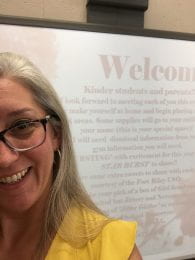
Stay connected with EdCats

Don’t miss a thing this fall! Be a part of EdCATS!
We want to help beginning and early career teachers like you thrive in your career! Check out #WeAreEdCats for teaching tips and to stay in touch with the COE! Check out the website at coe.k-state.edu/forever-edcats.
It’s Homecoming, a perfect time for you to visit
It’s almost time for Homecoming, and we’d love to have you return to the K-State campus!
The theme for this year is “Manhappiest Place on Earth.” As always, there will be lots to do throughout Homecoming Week, Oct. 20-26, highlighted by the homecoming parade and a pep rally. And don’t forget the football game Oct. 26, with K-State taking on the University of Oklahoma.
Here’s a link to a schedule of events…you don’t want to miss the celebration!
And, in case you’ve forgotten: WEAR LOTS OF PURPLE!
Something to brag about
Overwhelmed by all the grading? You need a system
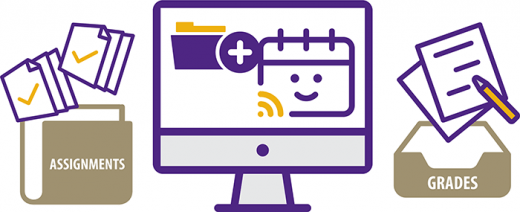 So…maybe I’m not the BEST person to write this, but….
So…maybe I’m not the BEST person to write this, but….
Amid all the new things you’re learning—bell schedules and assembly procedures, as well as the names of 135 or so of your very favorite students and a batch of new computer passwords and codes, one important area you will need to become comfortable with is record keeping.
As a new teacher, you’re probably realizing all the requirements for your new position, but good record keeping will save you plenty of headaches through the year. Absences, tardies, missing assignments, grades, and communication with students’ families and guardians are just a few of the details you’ll need to record. So let’s look at some suggestions that, hopefully, will make your daily teaching duties a little easier!
Communication Log: Communication—with families and guardians, colleagues, administrators, education leaders, and community members—is so important, and in the midst of lesson plans, activities, and classroom management, it can easily get lost.
IDEAS:
- Consider recording dates you attempted to contact (by phone or through email) parents/guardians and dates you successfully contacted parents/guardians regarding specific student concerns or successes. Make a brief note of the topic of communication and any decisions or input.
- Record dates/copies of student behavior referrals.
- Record ideas/suggestions gathered through your various communications.
- File family/guardian emails in a separate folder on your computer for easy access.
Attendance: When you’re dealing with 30 or more students, keeping track of attendance can be a daunting task! While you’ll probably have a computer program that your school uses to record students who are absent or tardy, you’ll probably want to include your own personal system, as well.
IDEAS:
- Develop a way to organize papers and other materials that absent students will need when they return.
- Try using a folder posted on a board or in a designated spot and placing any materials in it with specific students’ names on them. If you teach multiple classes, clearly label a folder for each class.
- Keep a list of students and their missing assignments. Many grading programs will generate these for you. Consider printing out two copies—a master copy for you and then a copy of each student’s missing assignments. Hand out a list of missing assignments to each student; handing these out on Fridays can be especially helpful to give them the weekend to address their missing assignments.
Grades: Keeping up with the grading and maintaining accurate grade sheets are always a concern for teachers—new and veteran teachers alike. Here are some suggestions.
IDEAS:
- Keep a basket on your desk so students will know where assignments go when they’re completed.
- Try to grade papers—and empty that basket—by the end of the day on Fridays. What doesn’t get taken care of by then probably needs to go home over the weekend. Try to always start your week with an empty assignment basket for a fresh start to your week.
- If you teach more than one class, have a folder for each class where you place assignments to be returned after they’ve been assessed.
- Group assignments and enter grades by the class, if possible. As late assignments come in, mark those students’ names off the missing assignments list.
- Just to be safe…periodically, especially if it has been a busy assignment time, print off the whole-class grade sheet and file in a secure place. If technology would fail (when you least expect it), you will have a backup.
And then your administrator grades YOU!
You’ve given your students grades; now it’s time for you to be graded. But, just as you want all of your students to be successful, your administrator wants you to succeed as well. He or she has put time an energy in selecting you and supporting you, and the teacher evaluations are just another sign that they want you to be the best teacher you can be.
Hopefully, you have visited with your administrator about the formal evaluations. He or she can share the number of times you’ll be formally observed and the process.
Usually, you’ll have a pre-evaluation meeting, followed by the formal observation. After that, you’ll likely have a formal meeting. For this part, make sure you complete any required forms. In many districts, you’re required to provide a detailed lesson plan (and possibly a one-page, brief version), seating chart, a brief narrative regarding the class, and copies of any materials you use during the class. Include anything to help him or her “see” what’s going on in the class—and anything to simplify the process.
You’ll probably find that, if you’ve built a relationship with your students, they’ll step up during the formal observation to help you succeed. Be sure to appreciate how they jump in to respond to your questions, sit still when they need to be sitting still, etc. We’ve rarely see students (big or small) misbehave intentionally during a formal observation.
For the pre-observation and post-observation meetings, share strengths and weaknesses. A good administrator will listen to your self-evaluation and help you strengthen the areas you believe need some help. Much like you work with your students, he or she should be eager to help you succeed.
As a new teacher, you will find an administrator may visit your room anytime. (It’s even been known for a superintendent to make an impromptu visit to a classroom now and then, as well.) The best way to prepare for that is to make sure you’re ready every morning. Often, it’s best to take a few minutes at the end of the day to set up for the following day’s classes. Get your materials photocopied, organized, etc., so you don’t have to do any searching as the students arrive in your classroom the next morning.
These evaluations early in your career are extremely typical. If anything, consider it a sign of support—that your administrators want to make sure you’re doing well in your classroom and want to know if there are steps they can take to help you be successful.
After the first year, the pressure of evaluations eases up quite a bit—especially if you’ve proven you’re qualified and comfortable in the role of a classroom teacher.
Am I right, second-year teachers? Are you remembering the butterflies of that first evaluation? Be sure to email and share some of your thoughts!
Fall traditions: Colorful leaves, pumpkins, and…the flu
 Falling leaves and doorsteps decorated by bright orange pumpkins signal—among other things—that the cold and flu season has arrived!
Falling leaves and doorsteps decorated by bright orange pumpkins signal—among other things—that the cold and flu season has arrived!
Since you may find yourself surrounded by sneezes in your classroom at some point in the next few weeks, take some steps to protect yourself from germs—and keep yourself from missing a few days of school. Try to:
- Get a flu shot to limit your chances of getting sick.
- Drink plenty of water.
- Eat healthy foods.
- Wash your hands regularly.
- Get eight hours of sleep (even if that means that last set of papers has to be graded the next day).
Looking ahead….
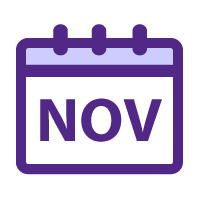 Don’t look now, but fall is quickly shifting into winter. Next month, we’ll offer some ideas to get you prepared as you move into the second quarter of the school year.
Don’t look now, but fall is quickly shifting into winter. Next month, we’ll offer some ideas to get you prepared as you move into the second quarter of the school year.
- Fantastic online classroom resources…from some of your favorite KSU professors
- Ways to celebrate the holidays and value your classroom’s diversity
- Our quick guide to faculty meetings
We’re waiting to hear from you!
What’s up?
Why don’t you send us a photo of you at work in your classroom! Or, do you have a question about classroom procedures? A suggestion for a topic we should address in Before the Bell? Want to add your name to our mailing list? Or provide a different email for our list? At the very least, just email and say hi!
And thanks to all of those who have emailed! We love the updates!
Early-career teachers, feel free to jump in and offer suggestions to those who are following your career choice!
We’d love to hear from you, so please email us at lagoodson@k-state.edu.
Go, COE Cats!
